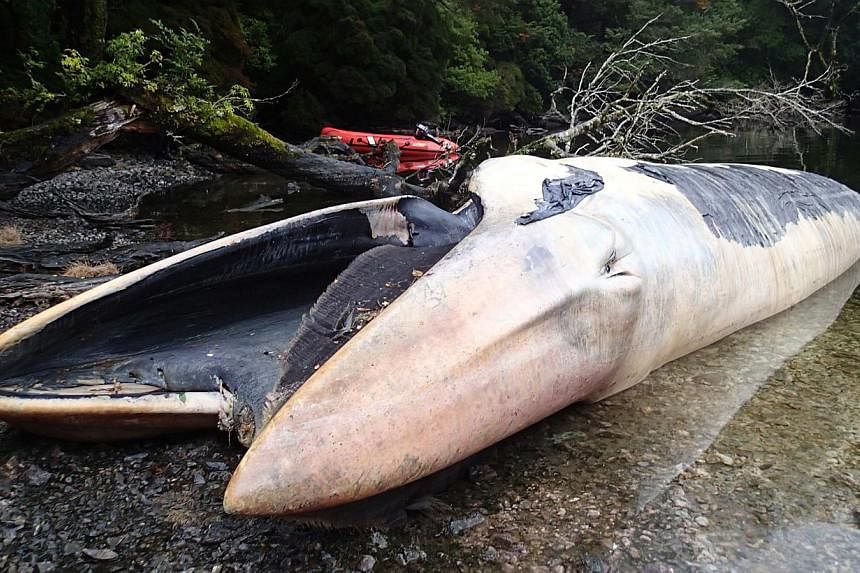SANTIAGO (AFP) - More than 20 whales were found dead and rotting along a rocky coast of southern Chile, maritime officials said on Friday, as they tried to determine what killed them and when.
The whales, discovered beached north of the Gulf of Penas, measured about 10m long, according to officials with Chile's national fisheries service.
Officials identified them as sei whales, which are internationally protected after being hunted nearly to extinction during the middle of the 20th century.
Images showed the decaying mammals grouped together and laid out along a grass-and-rock shoreline. They were discovered by a group of foreign scientists who were conducting research in the area.
"The number of dead whales exceeded 20, but we have not tallied the total," a fisheries service source told AFP, declining to be identified.
Bad weather was hampering attempts to determine exactly how many whales had died and when.
"They were everywhere, none were injured, so we thought they suffered from a red tide (algal bloom) or a virus," said German biologist Vreni Haussermann, who led the group that found the whales.
The cold area in southern Chile where the whales was found is in a partially closed and rugged fjord surrounded by green forests. A military base is located several miles from the beached whales' location.
Mr Haussermann said the scientists discovered the whales on April 21, but they only recently returned to a town where they were able to alert the fisheries service.
"I think they were swept away by the currents. In my 15 years in the area I never saw something like that," added Mr Haussermann, who was conducting a fauna survey when they made the grim discovery.




